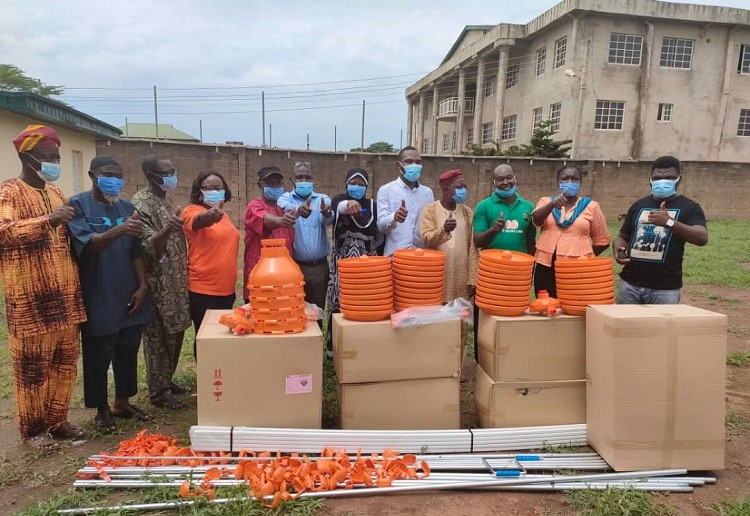In response to the effects of COVID-19 Pandemic on micro agricultural entrepreneurs, AFOS provides equipment financing and training systems in and for the food industry…
Agriculture in Nigeria has been adversely affected by the advent of the COVID-19 pandemic. The pandemic caused a breakdown in supply chains, which has led to spike in food prices and lower revenue generation for producers due to market instability. Nigerian agricultural MSMEs currently have a shortage of the necessary infrastructure and expertise to respond adequately to the production challenges posed by COVID-19. Therefore, capacity building of MSMEs and equipment acquisition support among other targeted interventions are necessary to mitigate the effect of COVID-19 on Agriculture and create a sustainable future within the industry.
To bridge this gap, AFOS Foundation through an increased funding from the Federal Ministry of Economic Cooperation and Development (BMZ) under the existing AGR I project as a practical intervention to promote equipment financing and training systems in and for the food industry. The funding targeted at providing equipment and technical training support for selected smallholder farmers in rural and peri-urban communities to promote business continuity and stability.
Overall, a total of 233 top smallholder farmer trainers in the value chains of poultry, aquaculture, cashew and staple crop were selected within the framework of AFOS agriculture as beneficiaries of different categories of equipment and training.
In numbers:
Within Kaduna and the Federal Capital Territory, 65 SHF in the grains & pulses value chains received the installation of 65 Mini-Power Tillers (Gas/petrol powered) at 7.5Hp capacity and specialized training on sustainable weed and pest control.
53 SHF in Ogun, Oyo and Lagos states were each provided with a metallic modern fish dryer/aquaponics system, alongside a specialized training on fish processing, packaging, and storage.
48 SHF in Kogi and Kwara states each received motorized knapsack sprayers alongside specialized training on crop farming.
In Osun and Oyo states, 67 SHF were recipients of layer cage system, feed pans and nipple drinking system respectively and benefited from a specialized training on poultry biosecurity, health, and nutrition.
To measure impact and sustainability, the beneficiaries participate in a monitoring and evaluation procedure by measuring identified Key Performance indicators (KPIs) associated with each equipment.

